Scuba diving
Scuba diving is a form of underwater diving in which a diver uses a scuba gear to breathe while exploring underwater environments. The term stands for scuba equipment, This equipment allows divers to carry their own air supply, typically in a tank, enabling them to breathe freely underwater. Scuba diving is a popular recreational activity and is also utilized for scientific, military, and commercial purposes. Divers can explore coral reefs, underwater caves, shipwrecks, and various marine ecosystems while enjoying the underwater world.
Why Diving in Aqaba?
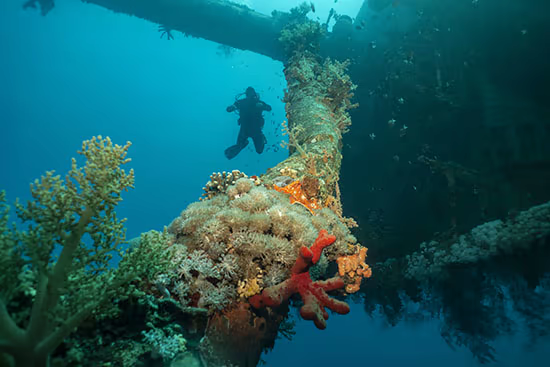
Diving in Aqaba in the Red Sea offers a unique and captivating underwater experience.
- The Red Sea is renowned for its vibrant and diverse marine life. Divers in Aqaba can encounter colorful coral reefs teeming with a variety of fish species, including parrotfish, angelfish, and clownfish. The clear waters make it an ideal location for observing marine life.
- Aqaba is home to beautiful coral formations, including hard and soft corals. The reefs provide a habitat for a plethora of marine organisms and contribute to the overall visual appeal of the underwater environment.
- The Red Sea is known for its excellent visibility, often exceeding 30 meters (100 feet). This clear water allows divers to enjoy stunning underwater landscapes and observe marine life with great clarity.
- The Red Sea is known for its excellent visibility, often exceeding 30 meters (100 feet). This clear water allows divers to enjoy stunning underwater landscapes and observe marine life with great clarity.
- Aqaba has several sunken wrecks, including the Military Meuseum and Cedar Pride, a cargo ship deliberately sunk to create an artificial reef. These wrecks attract divers interested in underwater archaeology and provide habitats for marine life.
- Aqaba enjoys a relatively mild climate, making it possible to dive throughout the year. The water temperature is generally comfortable for diving, with warmer conditions during the summer months.
- Aqaba offers a variety of dive sites suitable for divers of different experience levels. Whether you're a novice or an advanced diver, you can find sites ranging from shallow reefs to deeper, more challenging locations.
- The clear waters and abundant marine life make Aqaba a fantastic destination for underwater photography. Divers can capture stunning images of coral, fish, and other underwater scenes.
Why Do I Need Scuba diving Course?
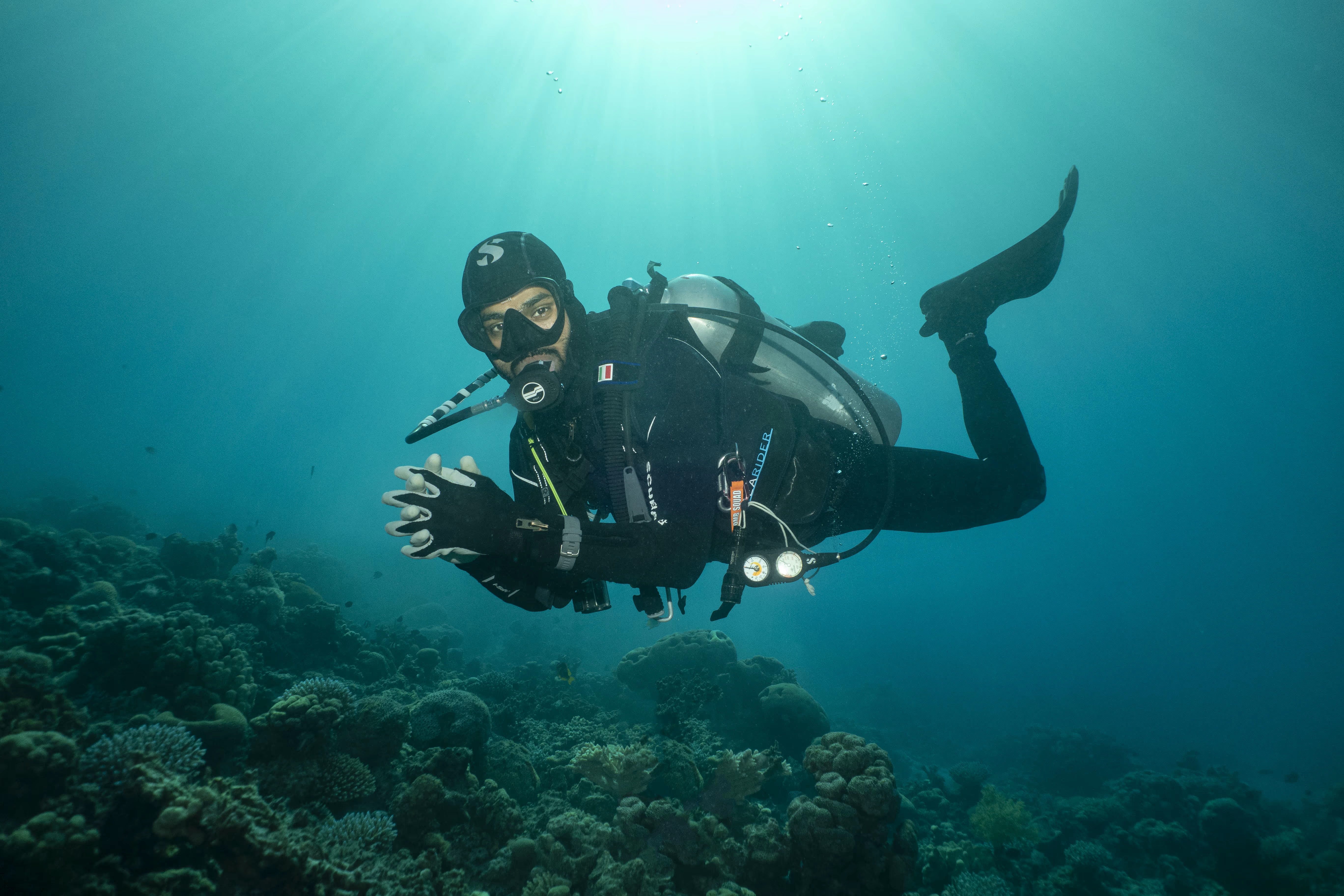
In summary, a scuba diving course is crucial for your safety, the safety of others, and the enjoyment of the underwater world. It provides you with the knowledge, skills, and confidence needed to be a responsible and competent diver.
Here are some key reasons why you need a scuba diving course:
1- Safety: Safety is paramount in scuba diving. Learning the proper techniques, safety procedures, and emergency protocols through a certified course significantly reduces the risks associated with diving. Understanding how to use scuba equipment and respond to potential challenges underwater is crucial for your well-being.
2- Skills Development: Scuba diving involves specific skills and techniques, including buoyancy control, equalization, and underwater navigation. A certified course ensures that you acquire these skills under the guidance of experienced instructors. Mastering these skills enhances your confidence and enjoyment while diving.
3- Equipment Familiarization: Scuba diving involves the use of specialized equipment, including tanks, regulators, buoyancy control devices (BCDs), and dive computers. A scuba diving course teaches you how to use, maintain, and troubleshoot this equipment, ensuring that you are comfortable and competent with your gear.
4- Understanding Dive Tables and Computers: Diving involves managing your time underwater and avoiding decompression sickness. A scuba diving course teaches you how to use dive tables or dive computers to plan and execute dives safely, taking into account factors like depth and bottom time.
5- Environmental Awareness: Responsible diving includes being aware of and protecting the underwater environment. Scuba diving courses often include modules on marine conservation, responsible diving practices, and how to minimize your impact on coral reefs and other ecosystems.
6- Certification: Many dive operators and destinations require proof of scuba certification before allowing individuals to participate in diving activities. Having a recognized certification opens up opportunities to explore a wide range of dive sites around the world.
Contact us and get the Scuba diving Touch tablet app. The Touch is an interactive study tool that gives you the background information you need to dive safely and allows you to learn at your own pace. Your Instructor will check on your progress and make sure you understand important Scuba diving information.
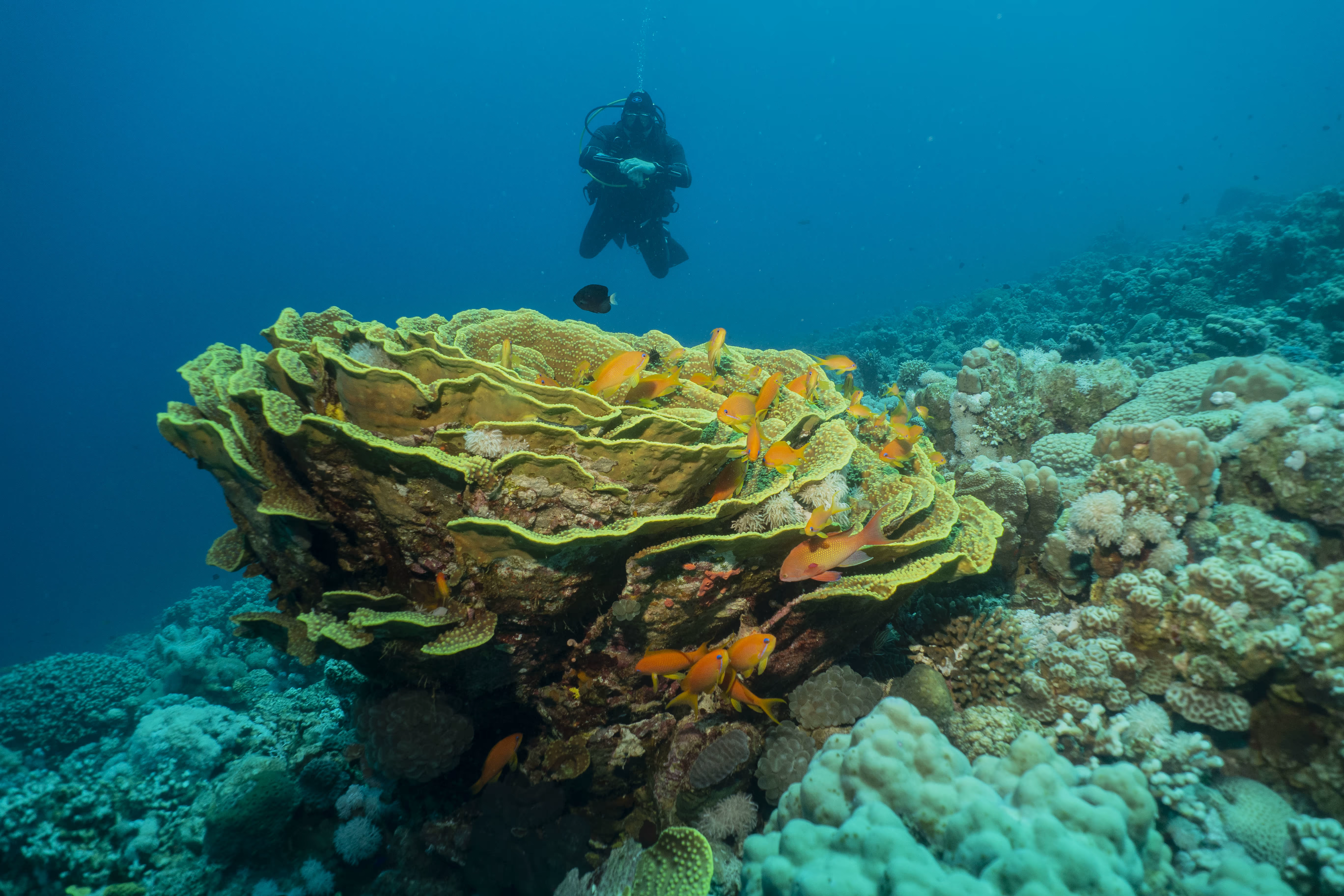
individuals with a taste of scuba diving
without the commitment of a full
scuba diving certification course. Try Diving
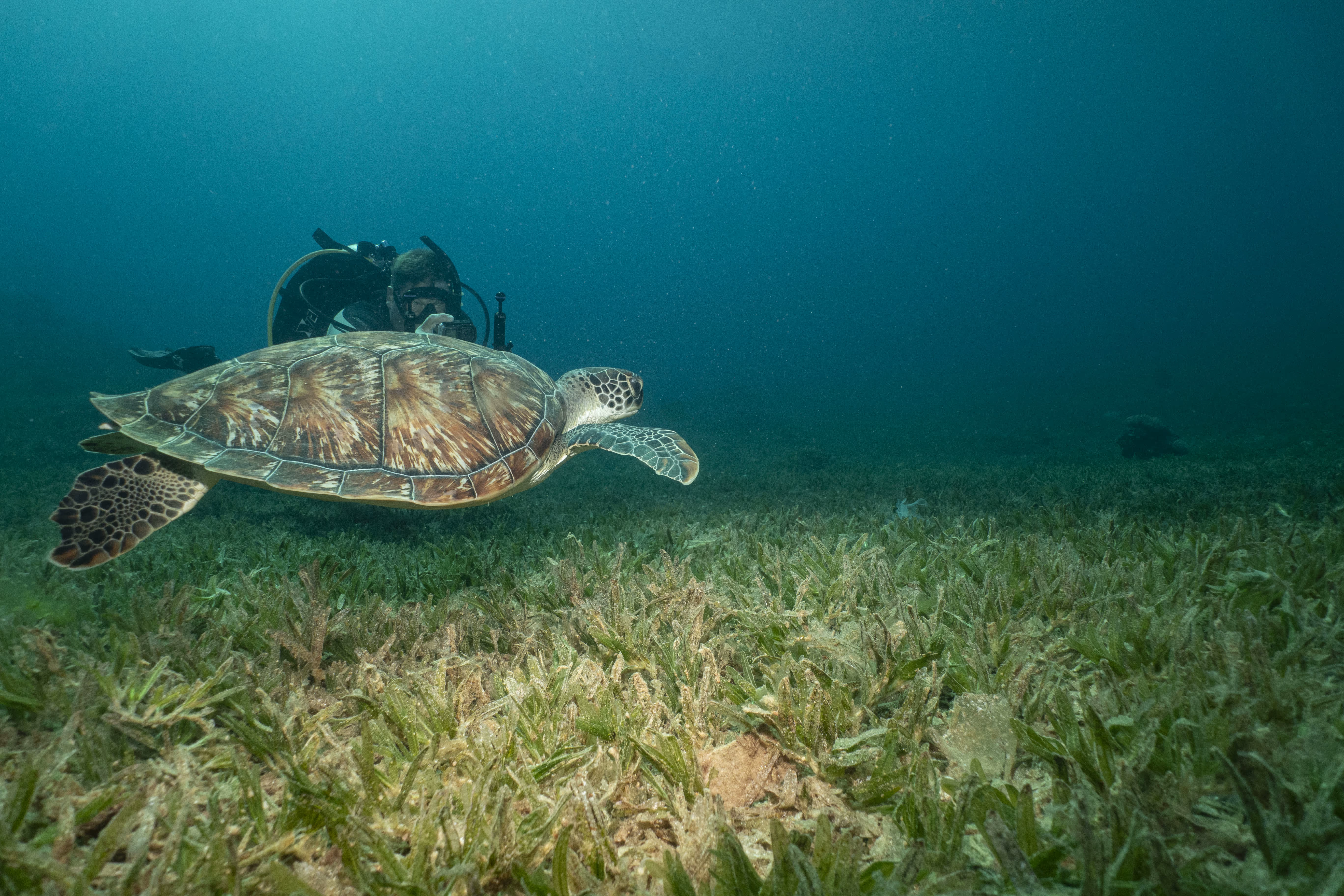
certified dive centers, resorts,
and is an excellent way for beginners
to experience the underwater world. Discover Scuba Diving

diving certification program in the world,
and entry-level allows you to
engage in recreational scuba diving. Open Water course
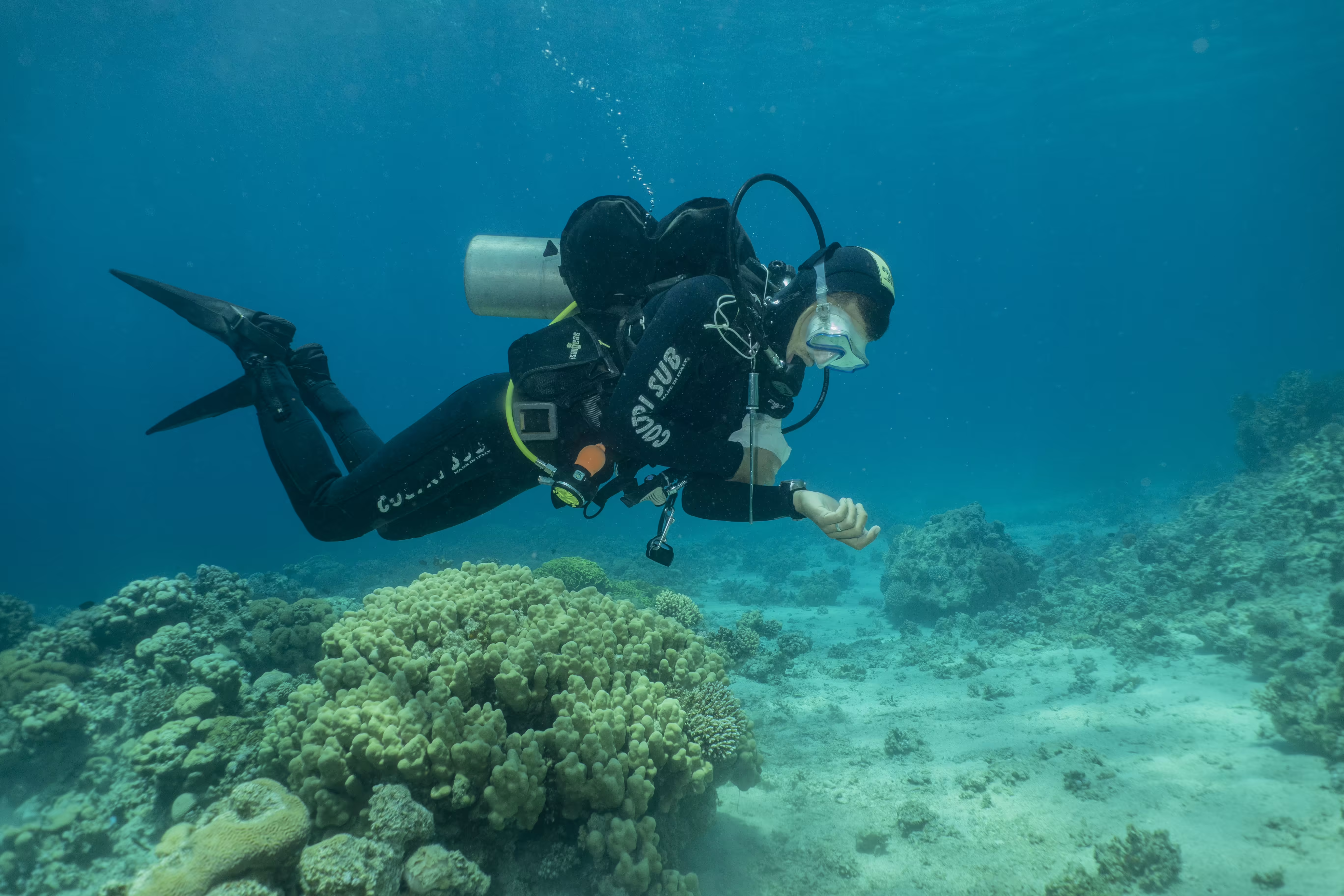
individuals who have completed
their Open Water Diver certification and
want to gain more experience and confidence
in various aspects of scuba diving. Advanced Open Water
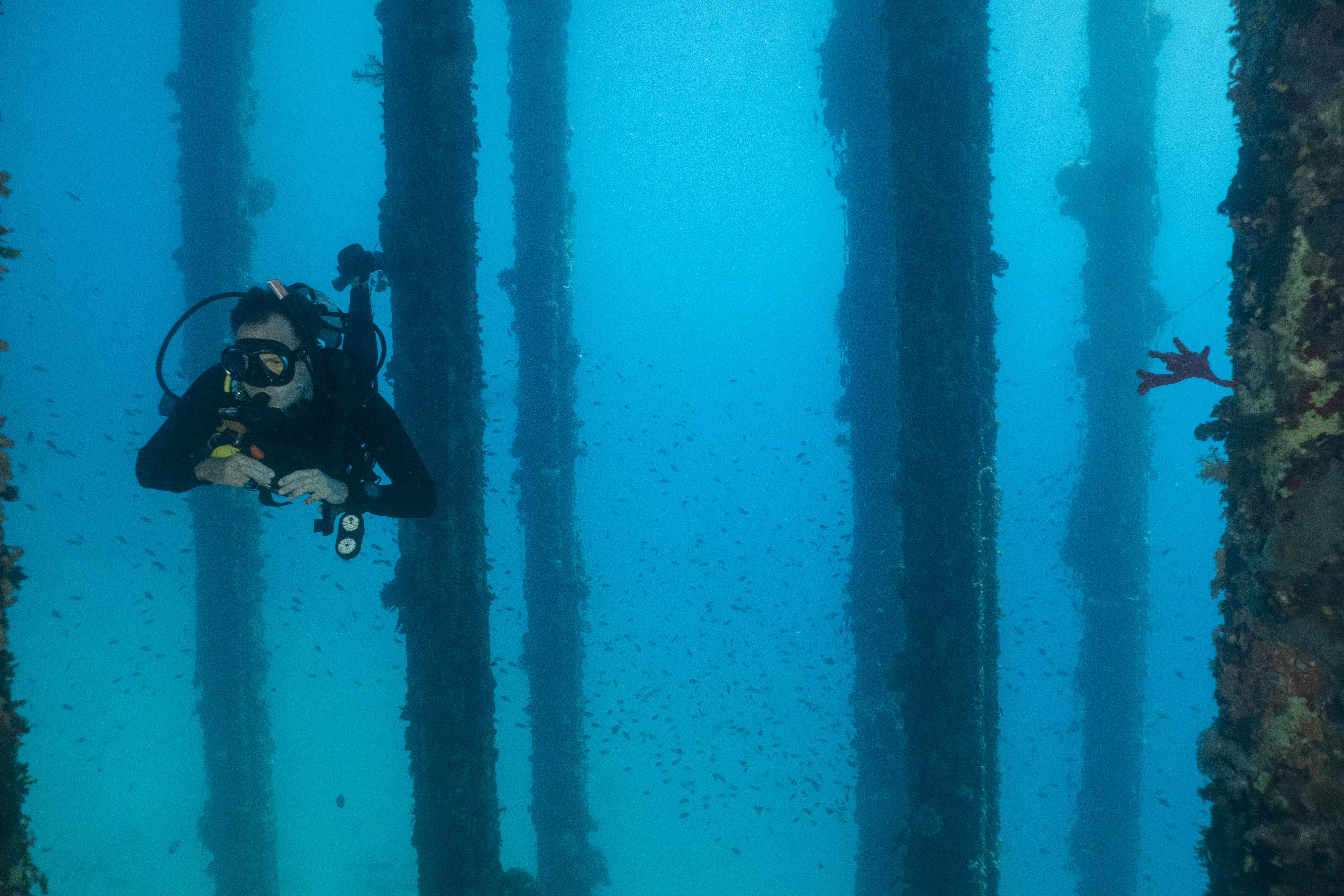
and is designed for individuals who want to
enhance their awareness, preparedness, and
ability to handle various underwater
scenarios. Rescue Diver Course
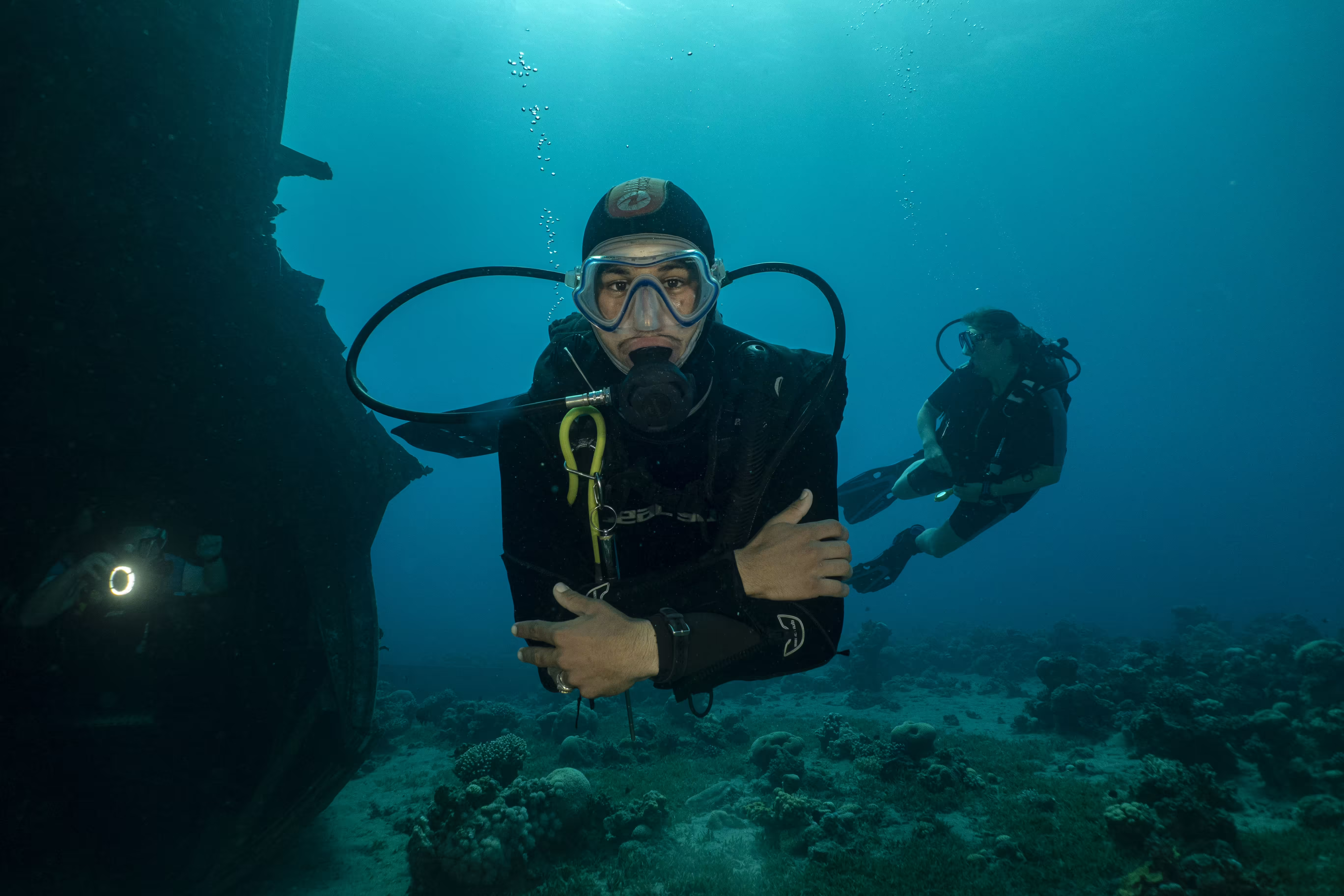
level scuba diving certification that goes
beyond recreational diving and prepares
individuals to take on leadership roles
within the diving community. Dive Master Course
How does Scuba diving affect the human body?
- Scuba diving can have various effects on the human body due to the changes in pressure, the underwater environment, and the physiological demands of diving.
- Pressure and Barotrauma:
As divers descend underwater, the pressure increases. Barotrauma can occur when pressure imbalances affect air-containing spaces in the body. This can lead to issues such as ear barotrauma (pressure-related ear pain), sinus barotrauma, and tooth barotrauma. - Nitrogen Narcosis:
Nitrogen narcosis, also known as "rapture of the deep," can occur at greater depths as nitrogen in the breathing gas affects the nervous system. This can result in symptoms similar to alcohol intoxication, such as impaired judgment and decision-making. - Decompression Sickness (DCS):
DCS can occur when nitrogen absorbed during a dive forms bubbles in the bloodstream and tissues as the diver ascends too quickly. Symptoms can range from joint pain and skin rashes to more severe neurological or cardiovascular issues. - Oxygen Toxicity:
Breathing high levels of oxygen at greater depths can lead to oxygen toxicity. This can cause seizures, which can be dangerous underwater. Divers use specific gas mixtures and follow depth limits to mitigate the risk of oxygen toxicity. - Dehydration:
Dehydration can be a concern during diving, as breathing dry compressed air can lead to increased fluid loss. Divers should stay well-hydrated before and after dives. - Temperature Stress:
Exposure to cold water can lead to hypothermia, while exposure to warm water can cause overheating. Proper exposure protection (wetsuits or drysuits) is essential to regulate body temperature. - Respiratory System:
Breathing compressed air at depth can lead to increased airway resistance, and divers must regulate their breathing to avoid overexertion and conserve air. - Cardiovascular System:
The cardiovascular system experiences changes in heart rate and blood flow during diving. Blood is redistributed to vital organs, and heart rate may increase in response to exertion and environmental factors. - Vision and Light:
Underwater, visibility decreases, and the color spectrum changes. Divers may rely on artificial light sources, and adjustments in vision may occur due to changes in light absorption underwater. - Musculoskeletal System:
Divers may experience fatigue and muscle cramps, especially during strenuous or prolonged dives. Proper fitness and conditioning can help mitigate these effects.
* It's crucial for divers to undergo proper training, adhere to safety guidelines, and be aware of their physical condition and limitations to minimize the risks associated with scuba diving. Regular medical check-ups and staying within established diving limits are essential components of safe diving practices.
